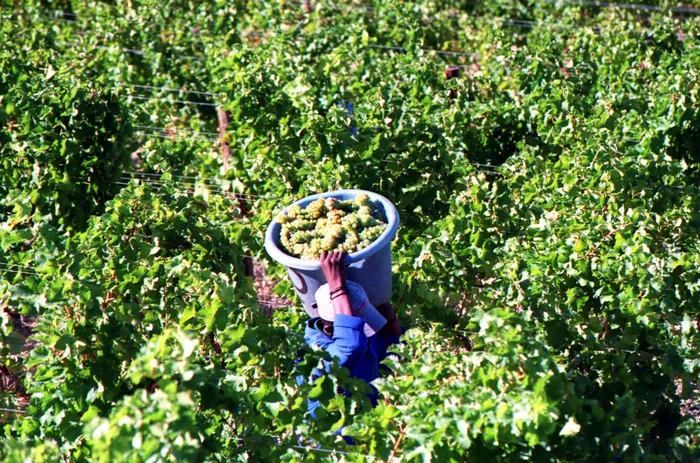South Africa braces for job losses as US imposes steep US tariffs on exports - EY
US TARIFFS

In its South African Macroeconomic Outlook for August released on Wednesday, EY said the agriculture and automotive sectors were expected to be hit the hardest, with key exports like citrus, wine, soybeans, sugar cane, and beef being especially vulnerable.
Image: Denzil Maregele/Independent Newspapers
Professional services firm, EY, has reiterated the warning that the newly imposed 30% levy on South African exports to the United States could cause around 100 000 domestic job losses.
South Africa faces a 30% rate, alongside peers like India (25%), Brazil (50%), Taiwan (20%), Switzerland (39%), Canada (35%), Mexico (18%), and Vietnam (22%).
The tariffs, ranging from 10% to 41% on imports from 69 countries and effective from early August, will add to existing duties under Section 232 and the Inflation Reduction Act, overriding prior exemptions.
According to the US Trade Representative, these measures signal a long-term pivot toward supply chain realignment and domestic reindustrialisation, unlikely to reverse soon.
In its South African Macroeconomic Outlook for August released on Wednesday, EY said the agriculture and automotive sectors were expected to be hit the hardest, with key exports like citrus, wine, soybeans, sugar cane, and beef being especially vulnerable.
However, some relief comes from exemptions granted for select products, including critical minerals like platinum group metals (PGM).
EY's chief Africa economist, Angelika Goliger, underscored the forward path amid these challenges.
"While the tariffs could strain key exports like citrus, wine, soybeans, sugar cane, and beef, exemptions for PGM will provide a buffer, enabling South Africa to pivot toward high-value mineral trade and emerging markets," Goliger said.
EY’s warning echoes that of the South African Reserve Bank (Sarb) as Governor Lesetja Kganyago in July said the US tariffs on South African products could cause about 100 000 job losses, with the agriculture and automotive sectors hardest-hit.
“If we do not find alternative measures, the impact on jobs could be around 100 000, so that is what we actually face,” Kganyago said during a radio interview.
“The impact in agriculture could actually be quite devastating because agriculture employs a lot of low-skilled workers, and here the impact is on citrus fruit, table grapes and wines.”
These estimates are higher than the recent job losses forecast from the Department of Trade, Industry and Competition (the dtic) as it only foresees at least 30 000 job losses from the projected figures.
Last week, the dtic director-general Simphiwe Hamilton said they based this estimate on the ongoing consultations they have with all the sectors of the economy — from automotive, agriculture and all the other sectors that are going to be impacted.
“At this stage we are sitting at approximately 30 000 jobs that could be affected by this, if it were to be mismanaged in any manner,” Hamilton said.
South Africa will be submitting a revised offer for a trade deal to Washington in a bid to lower the 30% tariffs while also looking at diversifying into Asian and African markets.
The dtic has also established an Export Support Desk, which will serve as a direct point of contact for companies affected by the US tariff hike.
EY's analysis projects that while short-term disruptions may weigh on growth, strategic shifts could enhance long-term competitiveness.
With PGM exempted, EY said the mining sector stands to benefit from sustained investor interest in critical minerals essential for green technologies. EY said agriculture and automotive firms, however, will need agile adaptations, such as supply chain rerouting and innovation in sustainable practices, to thrive.
"Looking ahead, the government's proactive Export Support Desk will be crucial in guiding businesses toward diversification, potentially unlocking new opportunities in Asia and the EU to offset US market losses," Goliger said.
"These measures will not only cushion immediate impacts but position South Africa for stronger, more resilient trade networks in a post-tariff world. By accelerating diversification, we could see a rebound in export volumes within 12-18 months, particularly if global commodity demand stabilizes amid US-China tensions."
BUSINESS REPORT